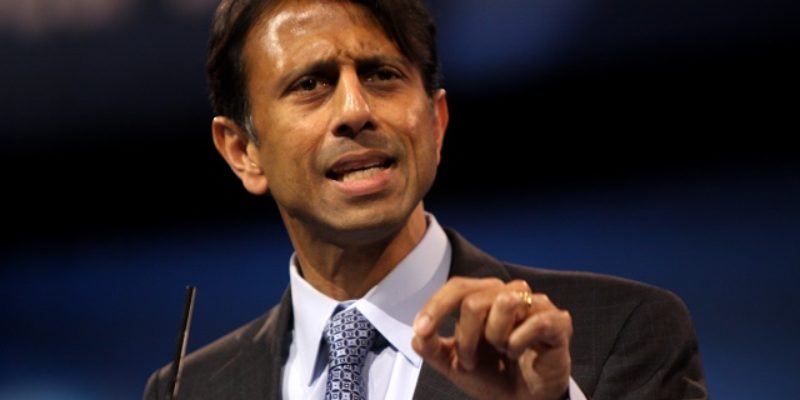A King v. Burwell victory would mean a sizable tax cut—if the GOP allows it to happen.
Twenty-five years ago this fall, what Richard Wirthlin, President Reagan’s pollster, called the “six most destructive words in the history of presidential politics” came crashing down. On November 5, 1990, President George H. W. Bush officially violated his “read my lips: no new taxes” pledge by signing his infamous budget deal with Democrats in Congress. For the intervening quarter-century, Republicans across the country, seeing the bipartisan opposition to Bush’s change of heart, have held the line, steadfastly refusing to pass tax increases. Now, however, some on the right are considering what amounts to a twofold case of apostasy: passing a multi-billion dollar tax increase — the first in 25 years — to fund additional spending on Obamacare.
The issue surrounds the upcoming King v. Burwell case, set to be heard by the Supreme Court this week. In it, the Court will decide the legality of insurance subsidies offered on 37 state exchanges run by the federal government. The text of the law says that insurance subsidies should be available only to those who purchase insurance coverage from an “Exchange established by the state.” Yet the Obama administration unilaterally expanded this restrictive language, allowing individuals in states that did not establish exchanges to receive subsidies.
A Supreme Court ruling restoring the original language of Obamacare — nullifying the administration’s rule, and striking down subsidies in the 37 states — would have several knock-on fiscal effects. Because Obamacare’s employer mandate is directly tied to the subsidies — firms not offering coverage pay the penalty only if their workers receive federal premium assistance — the mandate taxes will disappear in those 37 states. Likewise, the individual mandate’s affordability test is linked to the subsidies; the mandate only applies if coverage is affordable after any premium subsidies received. Removing them will dramatically weaken the individual mandate, reducing both the number of people to whom it applies and the amount of revenue it will raise.
As a result, a ruling in King v. Burwell striking down the subsidies would represent a sizable tax cut. The Congressional Budget Office (CBO) January baseline gives the numbers: Eliminating the employer mandate nationwide would cut taxes by $164 billion, and weakening the individual mandate — assuming it would no longer apply to any individuals who heretofore qualified for subsidies — would cut taxes nationwide by approximately $18 billion. Conversely, eliminating the subsidies would raise taxes, but only by $134 billion. That’s because most of the subsidies ($775 billion worth) come in the form of refundable credits — the government writing checks to individuals with no income-tax liability — which budget scorekeepers consider not a tax cut, but government outlay spending.
Eliminating the subsidies nationwide would therefore cut Americans’ tax liability by approximately $48 billion on net. Granted, these sums from CBO apply to all 50 states, while the King ruling would apply only to the 37 states that have not established exchanges. But the trend from the numbers is crystal clear: The tax reduction from eliminating the employer mandate, and weakening the individual mandate, outweighs any tax increase from eliminating the subsidies — meaning a favorable ruling in King v. Burwell would cut Americans’ taxes by many billions.
And here’s where some on the right want to snatch defeat from the jaws of victory. Conventional wisdom in Washington has assumed that, should the Court strike down the subsidies in 37 states under King, states will immediately act to establish their own state-run exchanges — allowing the subsidies to flow once more. Alternatively, Congress might be tempted to pass language extending the subsidies to the federally-run exchange, allowing Obamacare to comply with the Court ruling.
That’s a “solution” in search of a problem. If eliminating the subsidies represents a net tax cut, then restoring the subsidies — whether by states creating their own exchanges, Congress passing new legislation, or some combination of the two — would re-impose a sizable tax increase. Americans would pay billions more in higher taxes to fund the newly restored subsidies, making Obamacare that much more entrenched. What self-proclaimed conservative of sound mind would do such a thing?
Alternatively, some have talked about enacting a “compromise” that would restore the Obamacare subsidies while reforming some of the law’s new insurance requirements and regulations. But restoring the flow of subsidies means restoring the employer mandate, thus raising taxes. And even if such a “compromise” weakens or eliminates the employer mandate, the Obama administration — to say nothing of the insurance companies themselves — will hardly countenance a repeal of the individual mandate, which restoring the subsidies will only strengthen. So those seeking to restore the flow of subsidies will likely end up having to raise taxes on millions of Americans, in some way, shape, or form.
As they ponder both these facts and their response to King v. Burwell, conservatives would do well to remember President Bush’s view of his 1990 tax reversal: “I did it, and I regret it, and I regret it.” Republicans have spent the past 25 years fighting efforts to raise taxes — and the past five years fighting Obamacare — in an effort to restore the trust of the American people lost on that fateful day in October 1990. As we saw then, neither history nor the voters will be kind to those politicians who choose to break their word to the public. Here’s hoping that conservatives of all stripes have finally learned that lesson.
Bobby Jindal is governor of Louisiana. This piece originally appeared at National Review.
Advertisement
Advertisement

